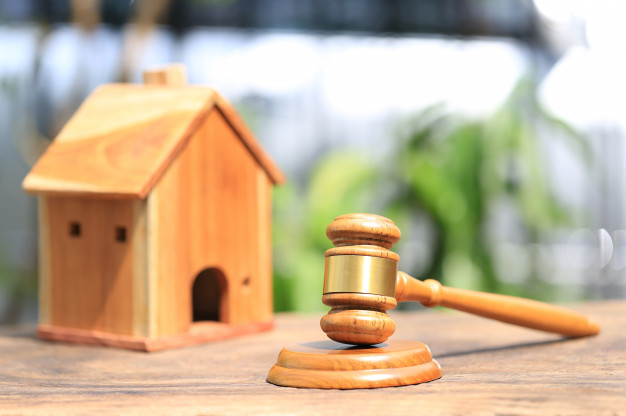Have you ever considered buying a foreclosed home? Or found yourself liking one? As a home buyer looking to buy below market value, you have to pay attention to foreclosure listings.
Although, the process of buying a repossessed home is full of misconceptions, let’s separate the false stereotypes from reality.
These are some common myths that need to be set straight.
Myth 1: The house must be bought in cash
First, this all depends on what stage a foreclosure property is in. If the home is in pre-foreclosure or “short sale,” the buyer does not need to shell out an all-cash offer.
As a buyer, you can procure a mortgage just like any traditional sale. Although if the bank sells the property at public auction, the mortgage holder usually does require that the home is bought with cash. Moreover, mortgage contingencies are not allowed in the sale.
However, if you don’t have a lot of cash on hand but know you’d like to buy a home in foreclosure, you can draw from a line of credit obtained using the current property.
Moreover, when the foreclosure is a bank-owned property, the bank is usually actively looking for an end buyer.
The purchaser of a bank-owned property is almost always able to procure a mortgage as part of the contract with the bank.
Myth 2: Buyers forfeit their right to have a home inspection
Definitely not true! As a buyer, you have the right to do a home inspection and ask for repairs. However, banks or sellers aren’t required to make them. But home inspections are actually encouraged since nearly all banks sell their foreclosed homes in as-is condition, and want to avoid liability down the line.
Although it’s common for structural, electrical, and plumbing issues that pertain to the safety and integrity of the home to be repaired, there’s no guarantee. Every bank and every deal is different. However, don’t count on the bank to fix those cosmetic issues. Minor blemishes are not likely to be addressed.
Buyers considering a foreclosure should make sure the sales contract has a contingency clause that requires a passing home inspection. This way, buyers can either choose to accept any issues with the home or back out of the contract.
With courthouse sales, however, homes are sold as they are, with no inspection.
Myth 3: Foreclosure homes require huge repairs
It’s incorrect to assume that all homes in foreclosure are in bad condition. A large percentage of foreclosures are the result of job loss, illness, death, divorce, or even fluctuations in the real estate market. Hence it means many of these homes were well maintained and may need only minor touch-ups.
It quite often depends on the attitude of who last owned the property and whether or not they went out of their way to destroy the place.
Myth 4: Foreclosures sell at heavy discounts
Unfortunately, a common belief is that a foreclosure home will sell for at least half of its original value. But remember, the bank still wants to make a profit. Buying a foreclosure home can save you green, but the seller will hold out for the maximum price possible.
Homebuyers often make a beeline to foreclosures because they think they can get a home for shillings. But by the time they factor in the time and renovation costs, they may reconsider.
Despite the fact that foreclosures can provide an opportunity to save, you’ll need time and extra cash to take advantage of it.
Myth 5: Foreclosure homes carry hidden costs
The fear of hidden costs may send potential buyers running, but it’s not necessarily a worthwhile concern.
Basically, a lot of the costs involved are typical for any real estate purchase things like inspections, appraisals, transfer fees, etc.
It’s no secret repairs on a foreclosure can prove costly, but a home inspection will reveal any potential problems during escrow. Also, the title deed can be researched on a foreclosed home.
Noteworthy is there are not any more hidden expenses in purchasing a foreclosed home than there would be in a traditional sale.
Myth 6: Foreclosures lose value faster than regular homes
Simply put foreclosed homes actually tend to rise quickly in value. With any home, there’s no guarantee it will deliver increases. However, buying a foreclosure sold below market value can provide instant equity. Plus any extra work done to the home can only increase the value.
There are a variety of factors that influence home values, including economic conditions, local market conditions, and the overall condition of the property.
Myth 7: Buying a foreclosure is risky
Let’s be honest. Any real estate purchase comes with risk, the only scenario where there’s some extreme risk is when buying at auction since you are buying the property as-is. Although, as a buyer, you won’t be able to conduct a professional home inspection and often not even able to see the inside of the property. Plus, they will be inheriting whatever came with the home.
For example, if there is a claim on the property, you could become responsible for it. When buying a home at auction, it is essential to do a title search first.
As a potential buyer, you should be informed before entering into any type of real estate transaction. Therefore, align yourself with resources that can help them navigate the purchase and financing process with confidence.
A knowledgeable real estate agent and a lender can help ensure that a buyer is making an educated decision so that the property and any resulting financing is the right fit for them.









